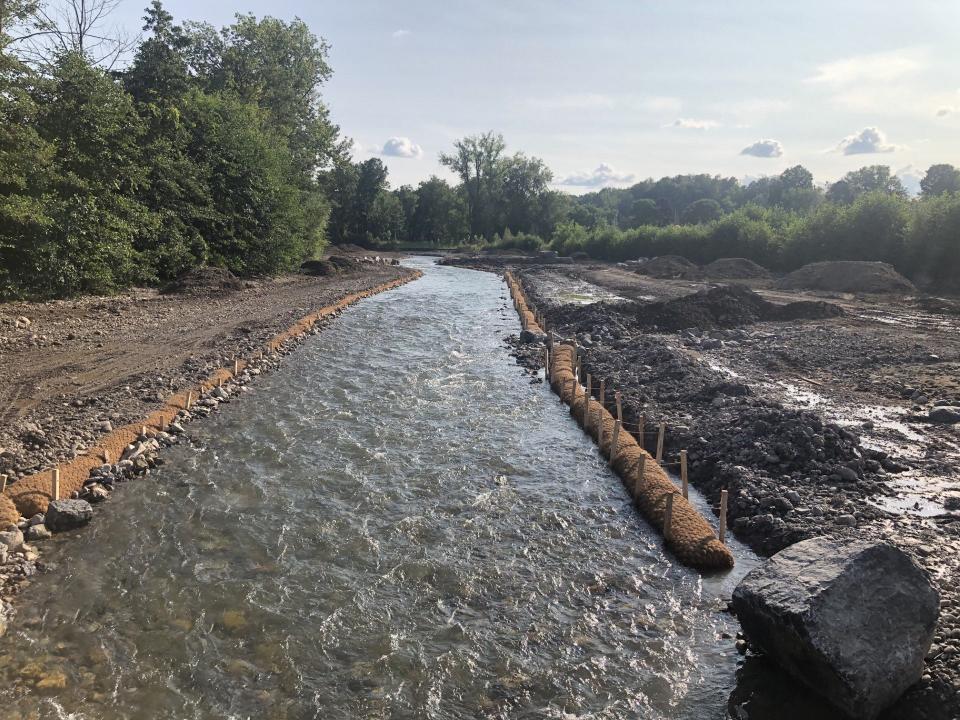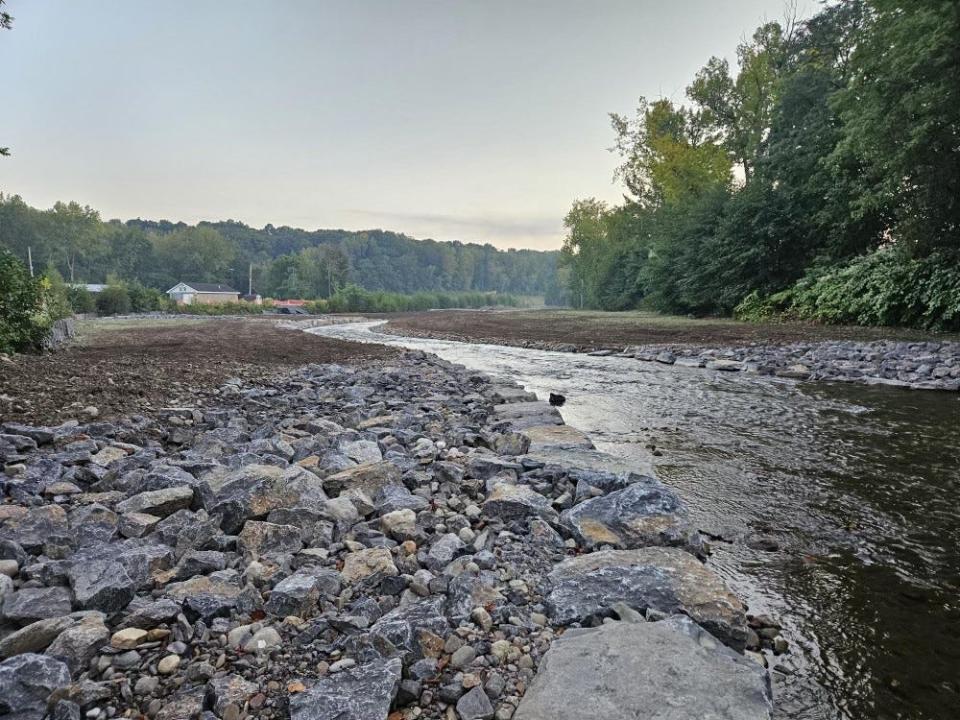Whitestown receives state money to continue floodplain mitigation efforts
Whitestown is receiving $50,000 in state funding to continue its Sauquoit Creek Channel and Floodplain Restoration Project.
The grant money is part of an overall $600,000 in statewide funding recently announced by New York Lt. Gov. Antonio Delgado and New York State Department of Enviornmental Conservation (NYSDEC) Commissioner Basil Seggos.
Whitestown Town Supervisor Shaun Kaleta said the NYSDEC money will be utilized in the third phase of the program.

“I can’t tell you exactly for what yet, but it will be used to offset the overall cost,” Kaleta said. The third phase will include enlargement of an existing floodplain bench and construction of a new bench on Lower Commercial Drive, officials said.
Major funding for the third phase is $3 million from the New York State Environmental Facilities Corporation (NSEFC) Green Innovation Grant Program.
Kaleta said the project is tentatively scheduled to go out to bid early next year, with construction expected to begin mid-2024 and run through 2025.
Floodplain history
Kaleta has called the town’s Sauquoit Creek Channel & Floodplain Restoration Program the largest flood mitigation and residential buyout efforts in New York state. It has become a model for other communities across the country to follow, he added.
Officials began talking about the multimillion dollar, four-phase Sauquoit Creek Channel & Floodplain Restoration Program in mid-2016 as an ongoing effort to alleviate flooding along the lower Sauquoit Creek in Whitesboro/Whitestown.
Part of the project involves constructing several floodplain benches, bank stabilization, channel widening and the creation of a public access trail along a 1-mile corridor of the lower Sauquoit Creek in Whitestown and Whitesboro. The work will help lower the creek while returning it to its original floodplain.
Kaleta has said the town hopes to have all the proposed floodplain benches completed by 2025.

Action plan
The grant money is part of the Mohawk River Basin Action Agenda for 2021-2026. The Action Agenda is a five-year plan advancing efforts to conserve, preserve, and restore the Mohawk River and its watershed and the grants will support local partnerships and initiatives throughout the region.
Located wholly within the boundaries of New York State, the Mohawk River is the largest tributary to the Hudson River and its watershed, encompassing 14 counties and 172 municipalities.
NYSDEC developed the Mohawk River Basin Action Agenda to bring together local, state, and federal agencies and other stakeholders committed to the conservation and preservation of the Mohawk River, its watershed, and communities.
“The Mohawk River Watershed is one of upstate New York’s essential environmental and economic treasures,” Delgado said in a statement. “These grants will go to protecting the Mohawk River habitats, improving water quality, building a more resilient region and ensuring a cleaner, more sustainable future for our state.”
Other grants
Three other grants were awarded to entities in the Mohawk Valley area.
A grant of $50,000 was given to the Erie Canalway Heritage Fund Inc, for a needs assessment to identify gaps in infrastructure and services including existing and needed amenities on the Mohawk River section of the Erie Canal between Rome and Waterford.
The Oneida County Soil and Water Conservation District (SWCD) received $32,887.50 for the Waterville Wastewater Treatment Stream Stabilization. The project will look to reduce bank erosion and enhance high flow management in the reach of Big Creek, which is in proximity to the Waterville treatment facility.
Riverkeeper Inc. Was awarded $29,615 for a sampling strategy for fecal bacteria monitoring in the Mohawk River. The project is in partnership with DEC, SUNY Cobleskill, and SUNY Polytechnic. The project will engage students and volunteers in the first watershed-scale assessment of fecal indicator bacteria at 28 sites within the Mohawk River watershed.
For more information on the Mohawk River Basin Action Agenda 2021-2026, past grant awards, and funding opportunities through the Mohawk River Basin Program visit DEC's website.
This article originally appeared on Observer-Dispatch: State money contributes to Whitesboro floodplain program

